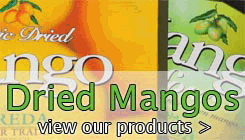Coco farmers oppose chemical pesticides
July 8, 2014 8:37 pm
CITY: A farmers’ movement in this city opposed the use of Neonicotinoids chemicals to prevent the spread of coconut scale insects (CSI) or “cocolisap”, saying these will hurt the coconut industry, certified organic farms and the beekeeping industry.
Save the Coconut Movement (SCM), comprising coconut farmers, landowners, organic farmers and bee farmers, called for a total ban on the use of chemical pesticides in affected areas.
In a statement, SCM co-convenor Dennis Lainez said the coconut industry will suffer if foreign buyers will refrain from buying chemically-laced coconut products from the Philippines, adding that local industries that depend on coconut will suffer if a single death or disability will occur because of the consumption of a chemically-laced coconut.
Lainez said Neonicotinoids will kill the bee industry and displace thousands of workers, businesses and investments. He emphasized that Neonicotinoids are not 100 percent effective, saying “the chemical was tested before and showed dismal results.”
Cocolisap infestation is currently concentrated in Cala–barzon, with 2 million trees affected as of April this year. An outbreak was also reported in Isabela City, Basilan.
SCM said the Philippines has 350 million coconut trees until Typhoon Yolanda reduced the number to 328 million.
“It may spell disaster bigger than the cocolisap infestation. If the importers of coconut products will learn that neonicotinoid trunk injection had been done, they might stop buying or importing our coconut products. The buyers abroad will be frightened knowing that the persistence of neonicotinoid may last from 40 days to six years. They might use the upper value (6 years). It implies that they may STOP importing coconuts from us for the next 6-7 years,” said SCM founder Edgar Eugenio stressed.
Eugenio said also warned that coconut products may no longer interest foreign buyers similar to the nata de coco case. Countries turned to Thailand when it was discovered that some of the exports have chemicals.
Eugenio noted that coconut exports reached US$2 billion or P88 billion based from the Gross Domestic Product report of 2013. He said virgin coconut oil exports is at US$ 54 million or P2.376 billion.
SCM suggested allowing nature’s intervention to have its way and help the coconuts recover nutritionally. The movement is supporting other steps such as pruning, organic spraying, biological control and organic fertilization.
PNA
http://www.manilatimes.net/coco-farmers-oppose-chemical-pesticides/110039/

